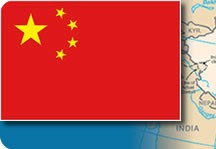 After many months of sitting on the sidelines, President Obama’s administration issued a statement on 3 August warning China not to contribute to an escalation of tensions in the South China Sea. The statement from the US State Department cautioned China that recent Chinese moves to establish a military presence and install barriers on disputed islands in the South China Sea were detrimental to diplomatic efforts focused on resolving territorial disputes in the region and only serve to increase tensions with neighboring Pacific nations.
After many months of sitting on the sidelines, President Obama’s administration issued a statement on 3 August warning China not to contribute to an escalation of tensions in the South China Sea. The statement from the US State Department cautioned China that recent Chinese moves to establish a military presence and install barriers on disputed islands in the South China Sea were detrimental to diplomatic efforts focused on resolving territorial disputes in the region and only serve to increase tensions with neighboring Pacific nations.
The statement, attributed to State Department spokesman Patrick Ventrell, also included a warning regarding China’s recent establishment of an administrative center in the small city of Sansha located in the Paracel Islands and Beijing’s announcement of plans to activate a military garrison in the city. Ventrell is quoted as saying that the “upgrading of the administrative level of Sansha city and establishment of a new military garrison there covering disputed areas of the South China Sea run counter to collaborative diplomatic efforts to resolve differences and risk further escalating tensions in the region.”
The State Department statement went on to say that the United States had grave misgivings about China’s recent activities in the Pacific and was “concerned by the increase in tensions in the South China Sea” and warned that the US would be “monitoring the situation closely.”
Ventrell’s statement also commented on the United States’ concern about an increased level of “confrontational rhetoric” emanating from Pacific nations and urged “all parties to take steps to lower tensions” and establish a diplomatic framework to peacefully resolve the territorial disputes in the South China Sea.
In response to the US rebuke, China’s Foreign Ministry summoned a senior US diplomat to register a protest to the State Department’s remarks. In a statement released on 4 August, China’s Assistant Foreign Minister, Zhang Kunsheng, reportedly called the US Embassy’s Deputy Chief of Mission, Robert Wang, to the Ministry to express China’s displeasure with Washington’s comments.
The Chinese release quotes Minister Zhang as saying that Chinese leaders were disappointed that the US statement “disregarded the facts, confused right with wrong, sent a seriously wrong signal and did not help with efforts by relevant parties to maintain peace and stability in the South China Sea or the Asia Pacific.”
Zhang’s statement went on to say that China wished to express “its strong dissatisfaction and resolute opposition” to Washington’s remarks and urged “the US side to immediately mend the error of its ways, earnestly respect China’s sovereignty and territorial integrity and do more to genuinely benefit stability and prosperity in the Asia Pacific.”
A companion statement attributed to Ministry spokesman Qin Gang reiterated Beijing’s stance that China unequivocally asserts its right of sovereignty over virtually the entire expanse of the South China Sea and the islands scattered throughout the region. Qin stated that China was well within its rights to establish an administrative center in Sansha City and it was only prudent to station a military garrison in the same location to protect Chinese interests given the unfriendly counter-claims announced by other nations.
Qin’s statement posed some questions for the United States with regards to ongoing events in the disputed region by asking, “Why does the US turn a blind eye to the facts that certain countries opened a number of oil and gas blocks, and issued domestic laws illegally appropriating Chinese islands and waters?” His statement also asked why the United States continued to avoid discussions addressing “threats of military vessels to Chinese fishermen by certain countries and their unjustified claims of sovereignty rights over Chinese islands.”
Washington and Beijing have been at odds with each other for many years as disagreements regarding Taiwan, Tibet, trade issues, and China’s continued support of North Korea continue to fester with no satisfactory resolution to any of these issues within sight in the foreseeable future. Now, the South China Sea disputes between China and her neighbors have gained renewed interest and promise to be a test of wills between the six nations now claiming territorial sovereignty over the small islands in the region.
The Philippines, Taiwan, Vietnam, Brunei, Malaysia, and China all have rival claims to areas in the South China Sea. The claims are complex and will be difficult, even in the best of circumstances, to resolve. Until now, the United States has adopted a public stance of relative neutrality in the disputes.
The South China Sea represents a rich source of resources all six nations are anxious to gain control of. Fishing has flourished in the area for many years and now it appears that oil, natural gas, and potential rare earth deposits are also abundantly present in the area.
The latest Association of Southeast Asian Nations (ASEAN) regional summit failed to make any headway in finding an equitable resolution to the issue. Offers of independent arbitration to decide the issues in question have been repeatedly rejected.
With the Obama administration’s recent announcement that the United States would refocus its attention on the Pacific, the usually docile Philippines has demonstrated stronger and more vocal opposition to Chinese incursions into those areas the Philippines considers to be Filipino territory. Vietnam has also adopted a policy of open and stern opposition to Chinese ambitions in the South China Sea.
A resolution adopted by the United States Senate encouraging all nations in the region to exercise restraint and avoid any actions that might be viewed as provocative, especially any efforts undertaken to take physical control of the disputed areas also drew a hostile response from Beijing. China continues to insist that she is entitled to the sovereign rights over the expanse as a consequence of centuries of contact and exploration in the area.
The United States has made it abundantly clear that protection of the sea lanes, freedom of navigation, and safeguarding maritime trade through the South China Sea represent issues of paramount importance to Washington. This latest statement, on the surface, appears to single out China for criticism while advocating support for the claims of the other five nations.
While this statement from Washington is a strongly worded deviation from earlier pronouncements, it falls in line quite nicely with the US pivot to the Pacific and serves as a caution to all Pacific nations that the United States is serious about developing a stronger presence in the region. It seems that the Obama administration’s policy of appeasing China with concessions, a policy that has never proven to be overly successful in the past, has come to an end.
On the other hand, this announcement should not be accorded more significance than it rates since the message was released through a relatively junior representative of the administration and did not come from a high-level government official. This fact is an indication that the US does not desire to be drawn into a situation that can never be resolved to everyone’s satisfaction. A cautious recrimination seems to be the best course of action at this time.

















